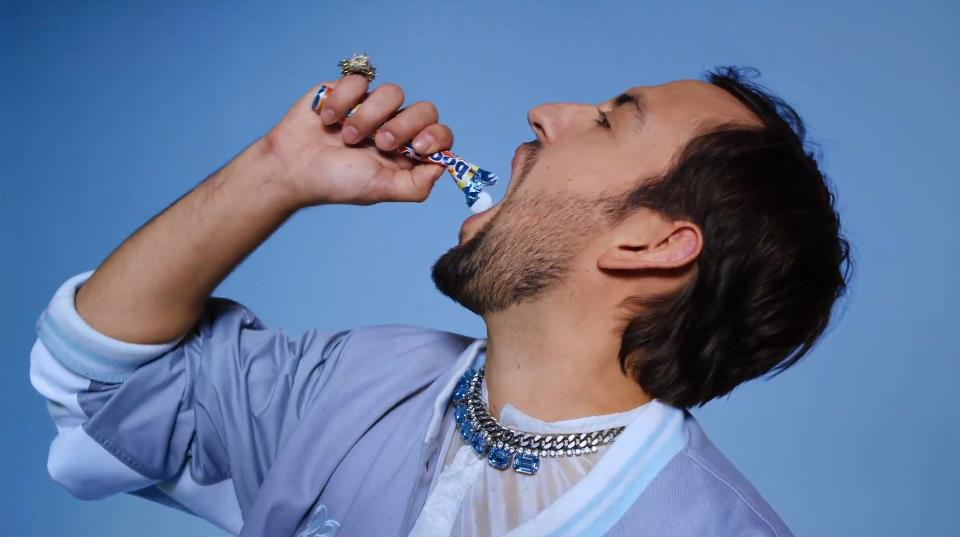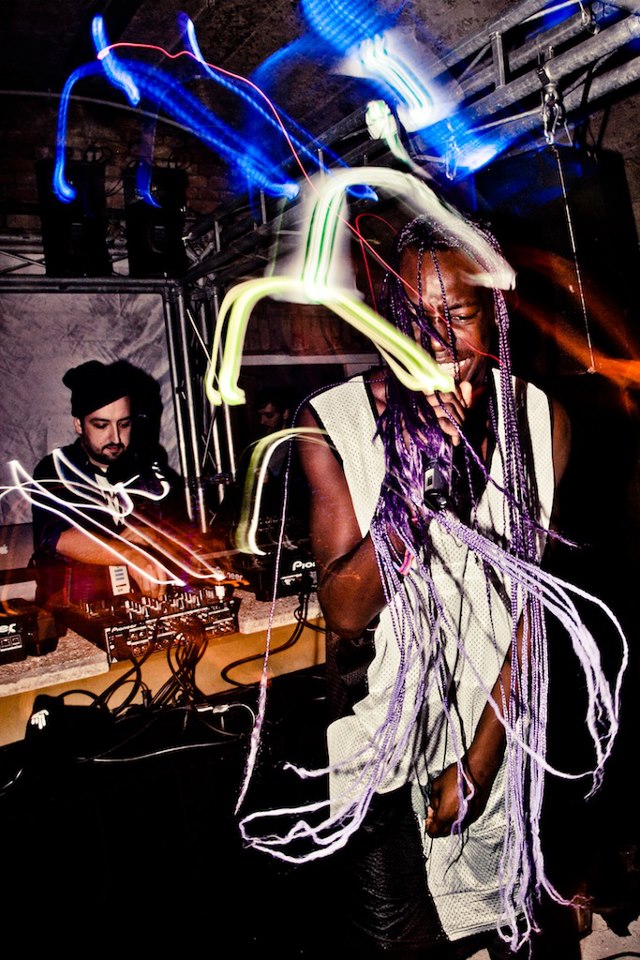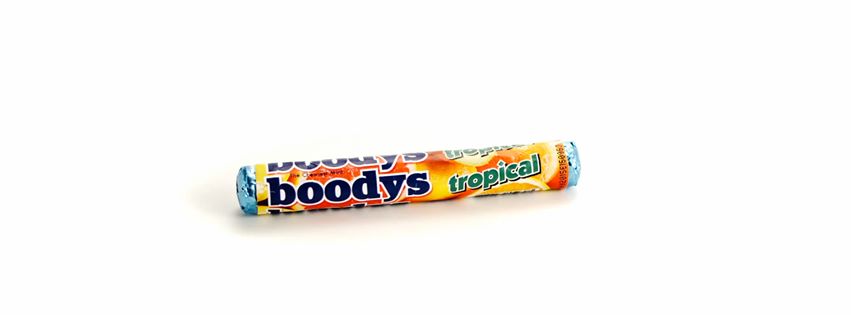The homie Boody is a Manhattan native who’s worked with a number of Dutty Artz favs like Scheme from Old Money, Le1f, and more. With Scheme, he ran the club oriented Palms Out Sounds record label and blog. But more recently he’s found some success producing for vocalists. His EP with Le1f was released on Boys Noize records and he’s made beats for the likes of Fat Tony and Mykki Blanco. None of this is to say that his solo instrumental work has taken a back seat. In fact, he has an album scheduled to drop this winter on Tri Angle records. Expect that darkness to shine and make sure to cop his track off Iswayski Says Ur Good Bread.
[youtube]http://youtu.be/isFjM1n_yjc[/youtube]
What are you up to?
Right now I’m working on my debut solo album with Tri Angle records. It’s a good fit, it’s not like Boys Noize where it’s going to hit people sideways. Now I’m trying to make a record for people who like the kind of music I make. I’m trying to own my style. I have six or seven songs that are reasonably well formed. It’s pretty weird, but I don’t do much else (laughs). It’s supposed to come out this winter. A single should drop late fall.
What’s it like?
It’s about “hip hop stars from the late ’90s” like DMX and Tupac. It’s mostly instrumental but there might be some vocals on there. And it’s not a dance record, it’s a listening experience. I’m trying to make a whole composition that makes sense from song to song and has a larger purpose than each song by itself. I’m trying to paint pictures more than influence people’s bodies. It’s dark and sort of Medieval, referencing that sort of dark New York sound. I want to try and capture that and recontextualize it. People forget that DMX had at least three debut Billboard albums. But now his legacy is that of a crackhead, like you mentioned earlier. I want to explore the rise and fall of someone like that, how he was chewed up and spit out. That’s a pretty dark theme. And there’s lots of people like him.
People should think about that more – the way they consume art. I want to create something with a timeless element to it. And that’s really hard to do when styles change all the time. I like current genres. I like all this new shit because I like newness. I get that. But you also want to make something that still sounds cool five years later.
How’d you get into music?
One of the things that spawned my interest in music was this local high school hip hop group called Automato. That was around 1998, and I was like 16 years old. These kids who were a couple years older. The guys from Holy Ghost were in it. They released an album produced by DFA. It was kind of a bust, but it was really interesting. Also, my sister’s friend worked at Def Jux, El-P’s label.
But I generally always had a broad taste, I listened to everything. I really like pop music. I like radio top 40. When I got a little older I started going to clubs at like 18. And I went to Europe when I was 19. I also went to Audio engineer school. We did total analogue stuff. But it was cool because I learn principal stuff about sound. That’s proved to be an important advantage to me as a producer.
You went to school with Scheme from Old Money, right?
I went to school with him at The Day School. It’s called the Trevor Day School now. A private school. We made a bunch of music there together. We started Palms Out together but later went our separate directions. The school had a pretty good music program I think, but no computer music at all. But I wasn’t in any of those classes and I don’t think Scheme was either. A lot of interesting artists came out of that school. The two guys in Holy Ghost. Drop The Lime. All sorts of music people went there. It was definitely a breeding ground, separate from the music program. I dropped out of high school at 16 and got my GED.
How did NYC rap influence you?
I love hip hop and pop music. And I love the cross section too. And I think that if you talk to a lot of people who make dark, experimental, weird music, a lot of them will probably like the pop stuff even more than their contemporaries music.
Company Flow was a huge influence on me. It was like, “Oh, I can see what New York hip hop can be.” That vibe that classic NYC hip hop had, more like Queensbridge style – dark piano style. I could always hear the potential in that, but it was never like my heart music. I really liked Mobb Deep, because they had an idea, but only occasionally did they take it where it needed to go. But then I got into Company Flow and the weirder underground stuff. Then I found British trip hop. The usual. Nothing major crazy.

How about club music?
I had the Palms Out blog because I was such a sponge with music. I was constantly listening to new stuff, and digging up samples, and making music. Totally in music 100 percent all the time. And club music at the time just struck me because it had so many of the sounds that I loved in a different context than I had really understood them before. Hip hop and British experimental electronic music had been huge for me as a teenager, but there was so much of all that I had loved in it just contextualized for the dancefloor and effective in a whole different way. Bringing in a whole new element. Then I started going to clubs and it was fun (laughs). House wasn’t the beginning of my club journey.
Where’d you go clubbing?
When you’re 18, there’s only so many places you can go in New York, but there were parties and stuff. But I’d go to clubs in Europe. My mother is from Denmark, so I always traveled to Europe a lot. I’d go to all the big festivals from 15 years old. That’s where I encountered what rave meant. But later on in New York I’d go to like the Black Cat raves that used to go down. The really old school New York warehouse parties. They carried the torch of the illegal warehouse scene by themselves for a while. It started way before my time, really. When I turned of age, I went to the regular downtown spots.
Where are you trying to be in terms of producing for vocalists and gigging?
I’m producing for a few other people. I produced a record for Ian Izah on UNO. I’m also doing a track for the rapper Fat Tony. I’ve been working with vocalists since I was 16. We were just always recording. Always trying. But now I’ve got management in place and I’m trying to get placements. Produce for more vocalists, not just my friends. I’m trying to make this a career. I’d like to get to a place where I play live, more performance bases and less DJ style. I’ve done a lot of clubbing but live music is more what I like. DJing isn’t my central focus. I did that because there was a lot of opportunities after Palms Out.
How’d you start working with Le1f?
Le1f and I do a lot of European gigs together, like Scandanavian dates, because we’ve been performing together long before any of the craziness. Before he released any music even. It used to be that you didn’t even need a release, you just needed a popular MySpace page to get a gig. I knew him from MySpace and New York. We’d met a few times. I was trying to put out one of his records on Palms Out in like 2008. The first time we got booked was for this small but focused gig in the forest in Sweden. People didn’t really know what they were seeing but they were hyped. It was us and Rye Rye – who only had one song. We had a great experience, we were treated like headliners. So we keep playing those kind of gigs together.
How was working with Boys Noize Records?
We made the Boys Noize record just for fun, experimenting with sound design. Using found sounds, making weird songs. We made “Sweet Tea” a long time ago and it just fit. Everyone was really sweet to us at the label. It was sort of a funny fit to us, but I always really liked the idea of working with the people who appreciate what I’m doing. And plus, if he has such a wide exposure, and it’s going to hit people who don’t expect to find it, you’ll get a strong reaction. As an artist, that’s what I want: for people to either love it or hate it. I don’t want them to say, “Sure, that’s pretty good.” But touring with Boys Noize didn’t really fit because of what we were doing. So we only did a couple dates with him.

